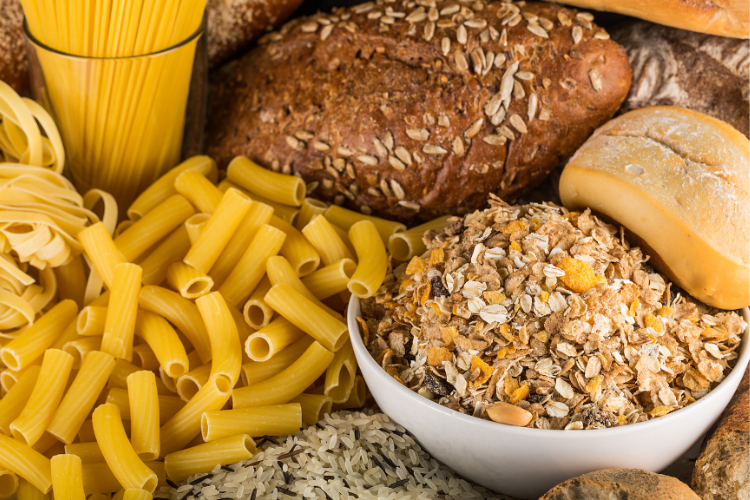Diet is a Noun
Diet. It’s a word that we, as Americans, overuse, misuse, and simply don’t understand. When I was growing up, my childhood could be marked into phases based on what new “diet” my mother started throughout the 1980s and 90s. The late 20th century gave birth to the self-help and dieting phenomenon that is perfected today by thousands of “experts” on YouTube and TikTok. And are we any healthier? Yes, advancements in technology, healthcare, and medicine have been made over the years. But has constant dieting helped us become healthier? According to studies, no. In fact, the average American now eats roughly 3,600 calories a day.1 That’s way more than we used to and way more than we need. Obviously, “dieting” as an action verb isn’t working. In fact, studies show that dieting can cause anxiety, depression, irritability, and an increase in cortisol (which, in turn, causes weight gain).2 If one of your New Year’s resolutions was to adhere to a strict dieting practice, but now a month later you’re frustrated and not meeting your goals, take heart. You’re like many of us who have fallen victim to using the word “diet” wrong.
Your diet isn’t something you should focus on from January 1 to — let’s be real — January 15. One Oxford definition of the word “diet” as a noun is the kinds of food that a person, animal, or community habitually eats. Diet is part of our life as humans. It’s constant. It’s our habits. What you eat daily shouldn’t cause anxiety and daily stress. Your diet should never raise your cortisol levels just thinking about it.
While your diet doesn’t have to be expensive, fancy or exciting, it can be delicious. Meats, vegetables, fruits, and grains all have a place in a healthy and balanced diet. And if you don’t have a gluten sensitivity or celiac disease, grains and gluten can also be part of a healthy lifestyle. Thankfully, we know so much more today about gluten than we did even 10 years ago, when going gluten-free was the latest bookselling fad. Humans have been growing and eating wheat for more than 12,000 years, and the amount of goodness grains add to a balanced diet goes way beyond your favorite slice of sourdough. “Wheat contributes more total protein to humans than any other food source, and the World Resource Institute awarded wheat the highest scorecard rating for the lowest carbon footprint per gram of protein, outscoring rice, soy, corn, nuts, and all meat sources,” explained registered dietician Craig Hunt.
Wheat products can be sources of energy unlike any other food. Wheat’s protein, fiber, vitamins, minerals, and antioxidants are important to a healthy body. A 3.5 ounce serving of unenriched whole wheat flour contains5:
15 grams of protein
10.6 grams of dietary fiber
71.2 grams of carbohydrates
38 milligrams of calcium
136 milligrams of magnesium
352 milligrams of phosphorus
376 milligrams of potassium
39 micrograms of folate
5.5 milligrams of niacin
0.5 milligrams of thiamin
Like anything, wheat products can become unhealthy when you add too much of a good thing. Our sweet tooth can get the better of us. That’s where our brains should be the master of our stomachs. My guess is that everyone reading this knows the risk-benefit ratio of eating a breakfast of toast and eggs or a dozen doughnuts. If you eat a dozen doughnuts, just don’t blame the wheat for how you feel afterward. An occasional doughnut is okay, and remember, the goal is a healthy diet for life. A life without doughnuts is not a life I want to live!
Diet is a noun, not a verb. There is no secret sauce to losing weight and getting healthy. And weight-loss pills have proven, well, scary. Live and eat for the long haul. Eat smart, exercise, and drink more high-quality H2O. Your body will thank you now, and in 20 years.
1 - https://www.businessinsider.com/daily-calories-americans-eat-increase-2016-07
2 - https://www.ncbi.nlm.nih.gov/pmc/articles/PMC2895000/
3 - https://www.cnn.com/2023/10/05/health/weight-loss-drugs-serious-digestive-problems-study/index.html
4 - https://wawheat.org/nutrition-1/plantstrong
5 - https://www.webmd.com/diet/health-benefits-of-wheat

